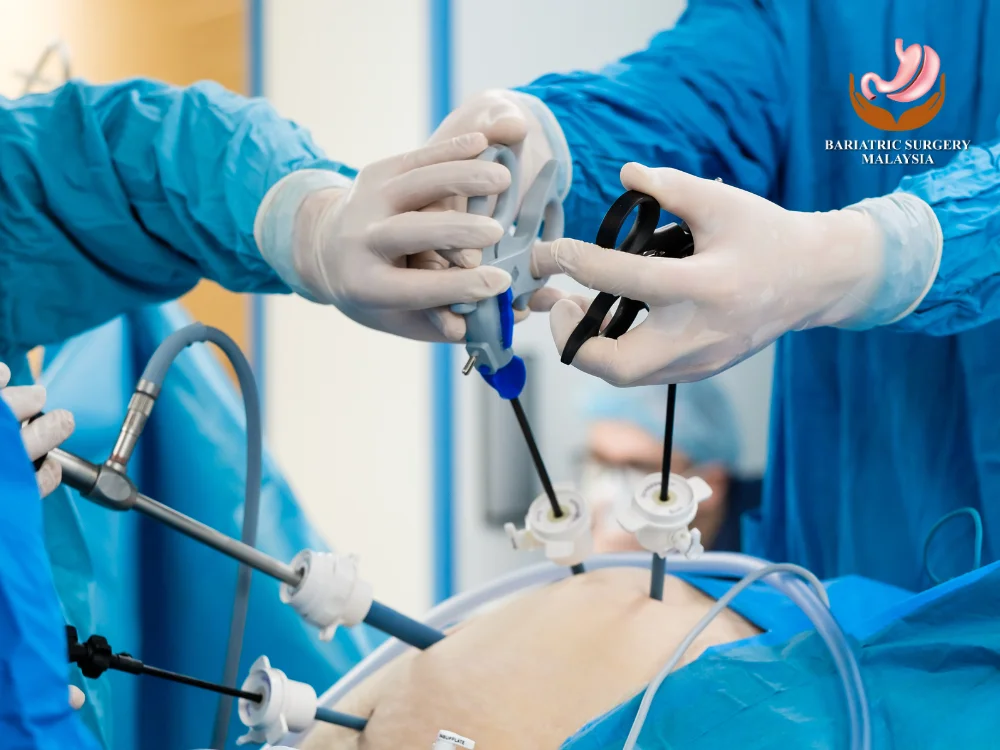Laparoscopic sleeve gastrectomy has become one of the most popular weight-loss surgeries worldwide. It’s a minimally invasive procedure designed to help individuals struggling with obesity achieve a healthier life. As with any major surgery, understanding its risks, benefits, and long-term impact is crucial. In this comprehensive guide, we’ll walk you through everything you need to know about laparoscopic sleeve gastrectomy, how it works, what to expect, and some important considerations.
What Is Laparoscopic Sleeve Gastrectomy?
Laparoscopic sleeve gastrectomy, often referred to as “gastric sleeve surgery,” is a weight-loss procedure in which about 80% of the stomach is removed. This leaves the patient with a smaller, sleeve-shaped stomach. Unlike gastric bypass, this surgery doesn’t involve rerouting or cutting the intestines. Instead, the procedure limits food intake, helping the patient feel full sooner, ultimately leading to weight loss.
This surgery is typically performed using a laparoscope, a thin, lighted tube that allows the surgeon to operate through small incisions in the abdomen, making it a minimally invasive technique. This reduces recovery time and minimizes the risks associated with more invasive surgeries.
How Laparoscopic Sleeve Gastrectomy Works
The procedure works primarily by reducing the size of the stomach. With a smaller stomach, patients can consume less food before feeling full. Additionally, it also reduces the production of the hunger hormone ghrelin, which curbs appetite.
The surgery is usually recommended for individuals with a body mass index (BMI) of 40 or higher, or for those with a BMI of 35 and above with obesity-related health issues such as diabetes, high blood pressure, or sleep apnea.

Benefits of Laparoscopic Sleeve Gastrectomy
Laparoscopic sleeve gastrectomy offers a wide range of benefits, particularly for individuals who have struggled to lose weight through diet and exercise alone. Here are some of the major benefits:
1. Significant Weight Loss
The most obvious benefit of laparoscopic sleeve gastrectomy is substantial weight loss. Most patients lose about 60-70% of their excess body weight within two years post-surgery. For many, this means a significant improvement in quality of life and overall health.
2. Improved Health Conditions
Obesity-related conditions, such as type 2 diabetes, hypertension, and sleep apnea, often improve or even resolve completely after the surgery. For individuals with diabetes, studies show that blood sugar levels can normalize or significantly improve after the procedure, sometimes eliminating the need for insulin or other medications.
3. Minimal Scarring and Faster Recovery
Because the procedure is done laparoscopically, it involves smaller incisions compared to traditional open surgery. This means less postoperative pain, minimal scarring, and faster recovery times. Most patients can return to normal activities within a few weeks.
4. Long-Term Appetite Control
As mentioned earlier, the surgery reduces the production of ghrelin, a hormone responsible for stimulating appetite. Patients often find that their appetite decreases significantly, making it easier to maintain their weight loss in the long term.
5. No Foreign Objects or Complex Digestive Rerouting
Unlike some other weight-loss surgeries like gastric banding or gastric bypass, laparoscopic sleeve gastrectomy doesn’t involve the placement of foreign objects or rerouting the intestines. This reduces the risk of long-term complications and malnutrition.
Potential Risks and Complications
As with any surgery, laparoscopic sleeve gastrectomy comes with certain risks. It’s essential to be aware of these before deciding to proceed.
1. Surgical Complications
Although the surgery is minimally invasive, complications such as infection, bleeding, or adverse reactions to anesthesia can still occur. Some patients may experience a leak from the stapled portion of the stomach, which would require additional surgery to repair.
2. Nutritional Deficiencies
Since the stomach is significantly reduced in size, patients may find it challenging to consume adequate nutrients. Over time, this can lead to vitamin and mineral deficiencies, particularly in vitamin B12, iron, calcium, and vitamin D. Patients are typically advised to take supplements for the rest of their lives.
3. Gastroesophageal Reflux Disease (GERD)
Some patients may develop or experience worsened symptoms of gastroesophageal reflux disease (GERD) after the procedure. This condition involves stomach acid flowing back into the esophagus, causing discomfort and heartburn.

Recovery After Laparoscopic Sleeve Gastrectomy
Recovery from laparoscopic sleeve gastrectomy is generally quicker than traditional surgeries due to the laparoscopic technique. However, patients should expect a period of adjustment as their body heals and adapts to a smaller stomach.
1. Hospital Stay and Immediate Post-Surgery
Most patients stay in the hospital for 1-2 days after the surgery. During this time, they are monitored for any complications. Initially, patients are placed on a liquid diet to allow the stomach to heal, gradually transitioning to pureed foods, soft foods, and eventually solid foods over several weeks.
2. Adjusting to a New Diet
One of the significant lifestyle changes after laparoscopic sleeve gastrectomy is adjusting to a new diet. Patients will need to eat smaller, more frequent meals and focus on nutrient-dense foods. Hydration is also essential, but patients should avoid drinking liquids during meals to prevent overfilling their smaller stomach.
3. Physical Activity
Physical activity is encouraged post-surgery but should be introduced gradually. Patients are typically advised to start with light walking and gradually increase their activity levels over the following weeks. Exercise not only aids in weight loss but also helps to maintain muscle mass during rapid weight loss.
Long-Term Success and Maintenance
Laparoscopic sleeve gastrectomy is not a magic solution. Long-term success depends heavily on the patient’s commitment to maintaining a healthy lifestyle. A balanced diet, regular exercise, and follow-up visits with a healthcare provider are essential to sustaining weight loss and avoiding complications.
1. Regular Checkups
Regular follow-up appointments with a healthcare provider help ensure that patients are on track with their weight loss goals and monitor for any potential complications. Nutritional assessments are also essential to ensure patients are meeting their dietary needs.
2. Support Systems
Joining a support group or working with a counselor experienced in weight-loss surgery can be incredibly beneficial. These groups provide emotional support, share tips, and help patients stay motivated throughout their journey.

Frequently Asked Questions About Laparoscopic Sleeve Gastrectomy
1. How long does the surgery take?
Laparoscopic sleeve gastrectomy typically takes about 1-2 hours, depending on the surgeon’s experience and the patient’s specific health condition.
2. When can I return to work after surgery?
Most patients can return to work within 2-4 weeks, depending on the nature of their job and how their recovery progresses.
3. Will I need to take vitamins after surgery?
Yes, due to the reduced stomach size, it’s essential to take vitamins and supplements to avoid deficiencies, especially in B12, iron, calcium, and vitamin D.
4. Is laparoscopic sleeve gastrectomy reversible?
No, the procedure is irreversible as a large portion of the stomach is permanently removed.
5. How much weight can I expect to lose?
On average, patients lose around 60-70% of their excess weight within 1-2 years post-surgery.
6. Are there any foods I can’t eat after the surgery?
Patients are advised to avoid high-fat, sugary, and processed foods to ensure optimal weight loss and health post-surgery.


